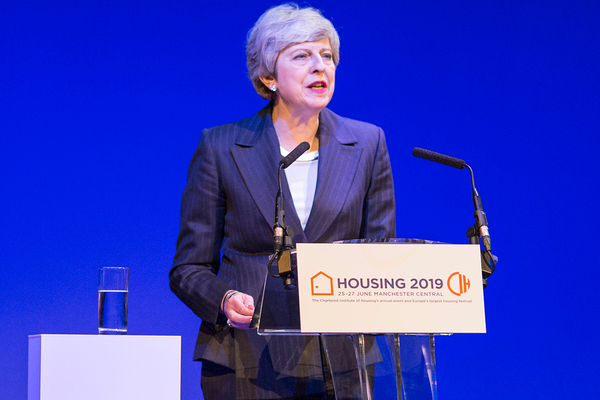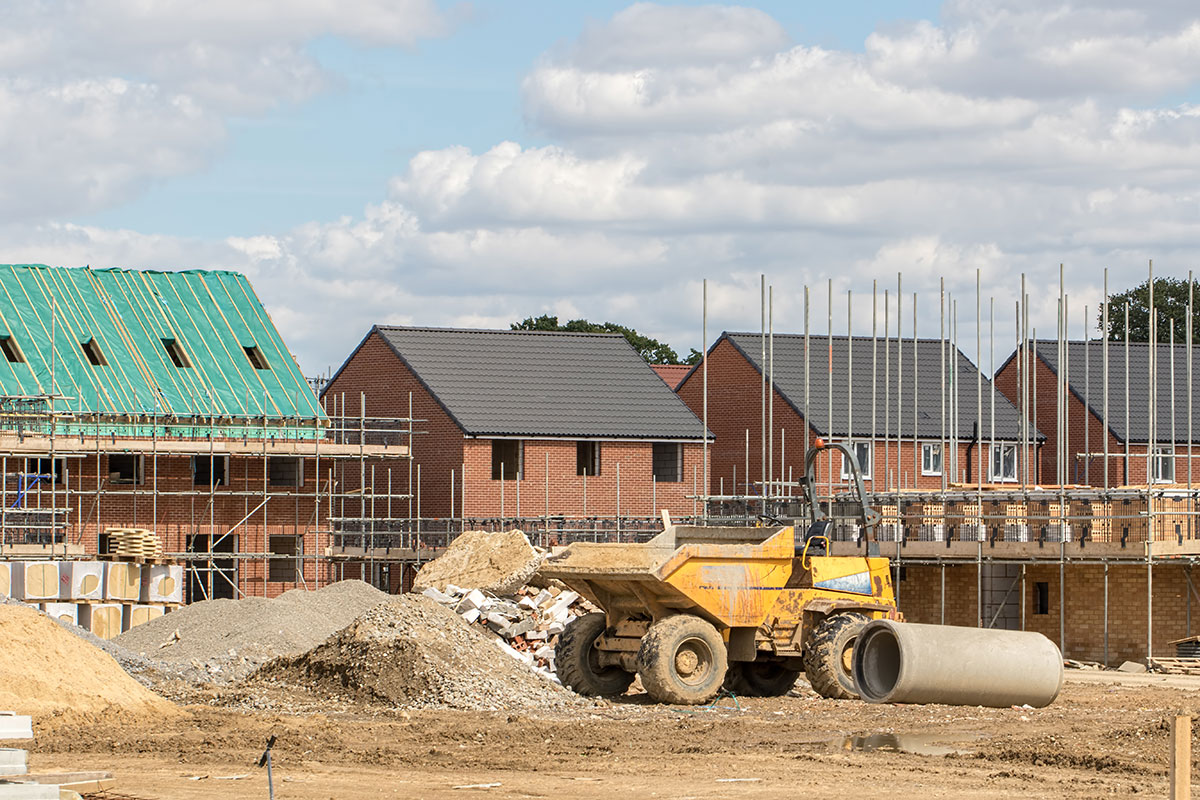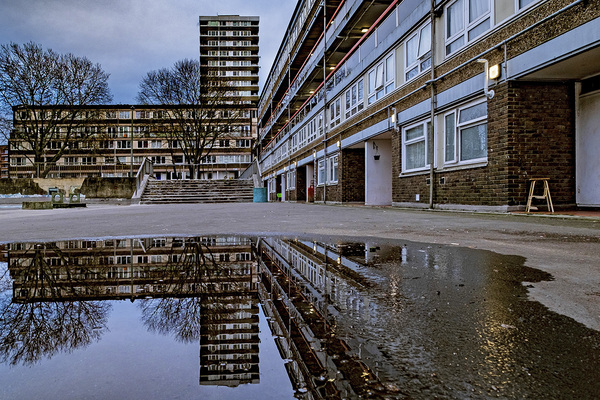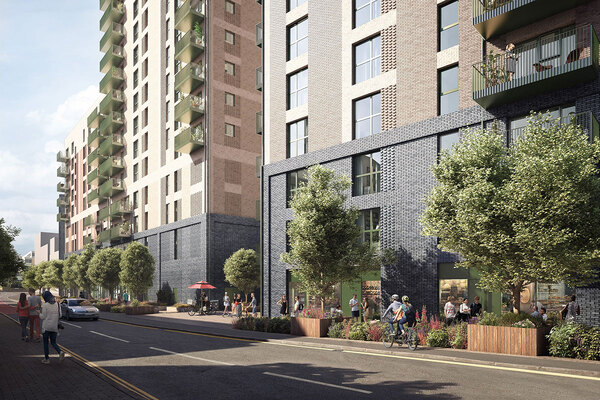You are viewing 1 of your 1 free articles
‘Truly affordable housebuilding’ must be central to Conservatives’ levelling-up agenda, says former PM
Former prime minister Theresa May has urged the government to make “truly affordable housebuilding” a central plank of the Conservatives’ levelling-up agenda, in the foreword to a new report.
Prefacing the report by the Centre for Social Justice (CSJ), the thinktank founded by ex-Tory leader Iain Duncan Smith, Ms May argued that her party’s focus on homeownership had become a distraction.
“Our overwhelming priority as Conservatives [should be] ensuring that everyone has a decent, affordable and secure home in which to live, work and build strong families,” Ms May said.
“Rediscovering our tradition of truly affordable housebuilding for the 2020s is what is needed if we are to address the social, economic and fiscal costs of the hidden housing crisis,” she added.
The CSJ’s new research had demonstrated that doing so would ensure Conservatives are “in tune” with so-called Red Wall voters in England’s former industrial heartlands, Ms May noted.
The CSJ report out today, Exposing the Hidden Housing Crisis, claimed to have uncovered a lesser-known “underbelly” of housing need, namely the impact of the collapse in supply of “decent, affordable homes” on people with little chance of ever accessing homeownership.
Soaring levels of rough sleeping – 141% higher than in 2010 – and use of temporary accommodation, in which 95,000 families were living as of this year, amounted to a “blight on society”, the report said.
It warned that the annual housing benefit bill, which is already approaching £30bn, could reach £50bn by 2050.
Researchers, who surveyed 5,000 English adults on behalf of the CSJ, found that more than half (55%) of the population believed local housing costs were too high, with proportions significantly greater in the South and East of the country.
Almost half (43%) of private renters said they found meeting their housing costs fairly or very difficult, with a similar proportion (46%) commenting that the pandemic had made their housing circumstances less stable.
Across every region and voting preference, a majority of respondents told the study that the primary goal of housing policy should be affordability. By contrast, only 11% of people – including just 14% of Tory voters – said that eventual ownership should be the primary goal.
Fewer than a quarter of people (24%) surveyed believed the government’s definition of affordable housing was “truly affordable to local people”, with a similar proportion (23%) agreeing that the government is supplying the right housing to meet need.
Just 4% of the population strongly agreed that social homes are allocated in a fair and just manner at present. Three-quarters (74%) of respondents believe social housing is an “essential” safety net for people who are financially disadvantaged or who have “non-financial vulnerabilities”, such as disabilities.
Many of those surveyed associated social housing with positive concepts such as safety and community, although some also made less positive links, such as to poor housing quality and untidiness.
“Stigmatisation played a small role in clusters, with 27% of respondents thinking that those living in social housing are unemployed, 16% saying they were never likely to move and 13% saying they were taking advantage of the government,” the report said. It added that many respondents “emphasised the importance of ensuring a mix of household types”.
A clear majority of people (63%) surveyed agreed that the UK government “needs to supply low-cost homes to rent to solve the housing crisis”, with almost as many agreeing that doing so would help to level England up.
Researchers found strong support for social housebuilding among so-called New Conservatives, one of six demographic groupings used in the report.
Among this group, described as including older voters both in former Red Wall constituencies and in areas such as the South East and East Anglia, 71% of study participants backed the supply of social homes to tackle the housing crisis.
“We know that clear majorities support social housing as an essential resource in every region of England, and almost 70% of red-wallers back social housing as a solution to the housing crisis,” said Matthew Greenwood, hidden debt lead at the CSJ. “These findings should give us the impetus to get to work on social housing and start in search of a long-term affordable solution.”
Andy Cook, the CSJ’s chief executive, said: “There is no simple left-right divide in England on what is known as ‘social’ housing, following the seismic realignments in political affiliation seen in recent years.
“The CSJ’s latest polling suggests that there is considerable public support and a major opportunity for the government to reset the agenda on truly affordable housebuilding – and to address the social, economic and fiscal problems associated with the hidden housing crisis,” he added.
“Given the scale of disillusionment over current ‘affordable’ housing policy revealed in the polling, we recommend the government initiates a process of rapid evidence-gathering to reshape social housing policy for the 2020s with the forthcoming Levelling Up White Paper.”
Sign up for our Week in Housing newsletter
Already have an account? Click here to manage your newsletters












